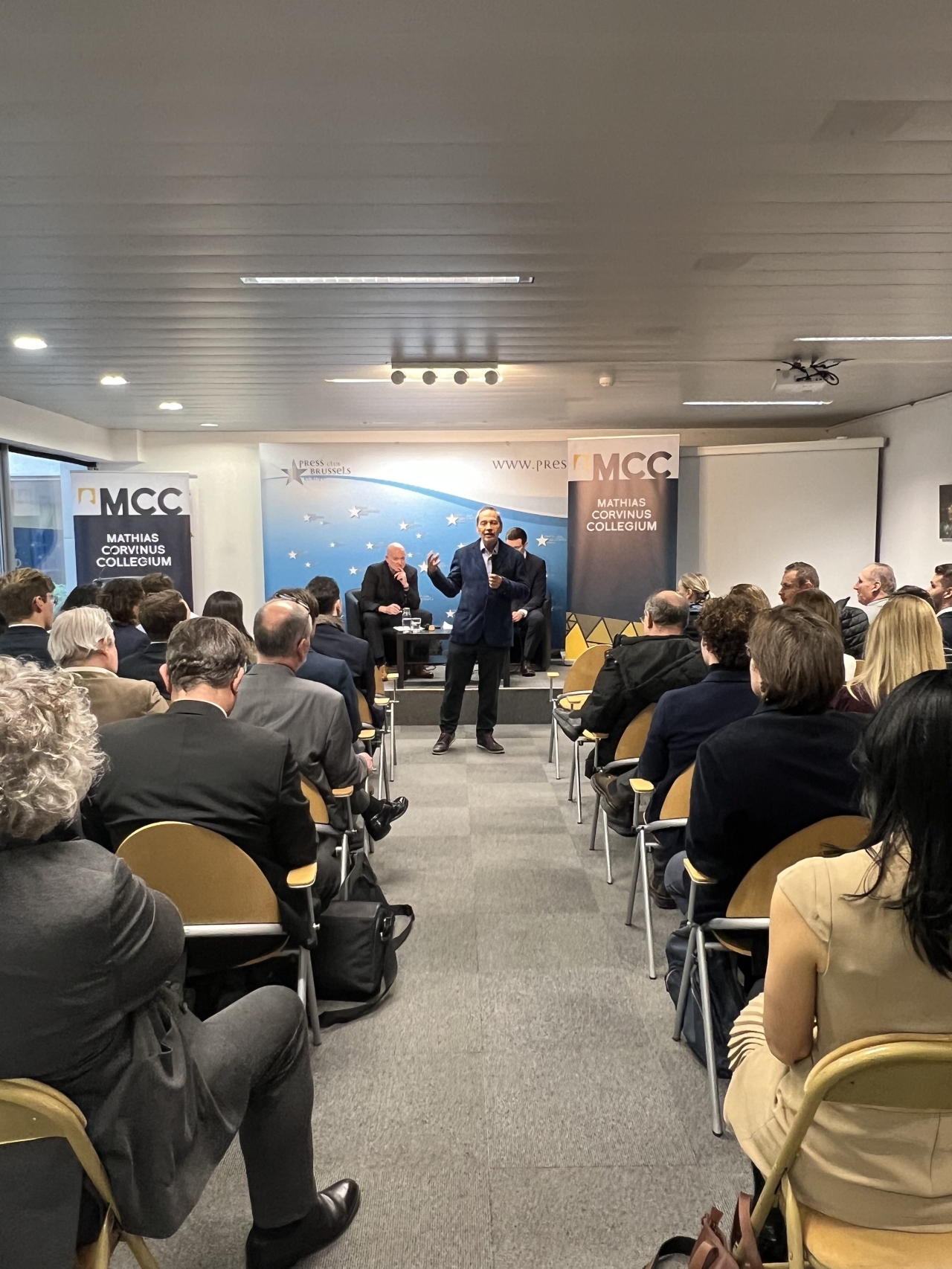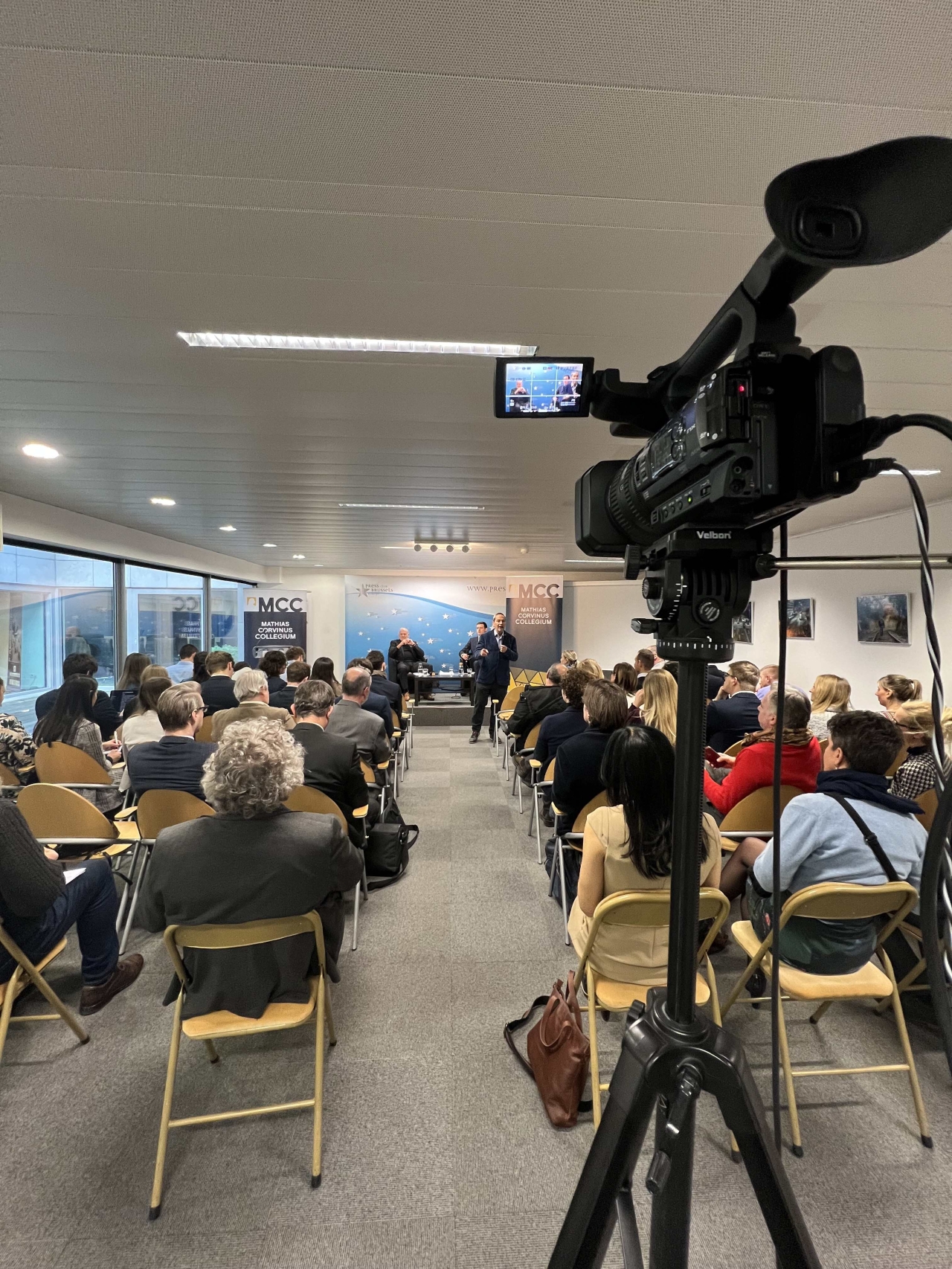Reading time: 4 minutes
At the second event to be held by the think tank MCC Brussels, hard questions were on the table about EU policy and practice in the digital age.
The forum entitled The Missing Start -Ups: Can the EU become a digital superpower? created a space to ask what does Europe need to accelerate innovation, and whether the EU is a help or hindrance when it comes to new technology? The speaker was Dr. Norman Lewis, managing director, Futures-Diagnosis Ltd and a recognised worldwide expert on future trends and user behaviours regarding technology innovation and adoption. He has many years of experience working with start-ups in Silicon Valley and the UK.
Addressing his remarks to Press Club Brussels, Dr. Lewis argued that “The EU is a regulatory superpower – with the ability to regulate the global marketplace unilaterally on account of access to the size and attractiveness of its single market – but it is not a true digital superpower and cannot be if it continues its current course. The ‘Brussels Effect’ obscures the weakness underpinning the EU’s quest for digital sovereignty: despite boasting the world’s largest GDP, it has failed to produce any homegrown technology giants. Only two of the world’s 30 largest technology firms by market capitalisation are from the EU. The challenge facing the EU is to become a real innovator in order to become a player, not remain a playing field.”
Continuing, Dr. Lewis said, “The sphere of investment and start-up ecosystems is one of the severest weaknesses of Europe’s aspirations for digital sovereignty. In 2020, the U.S. economy saw venture investments to the tune of $150B, compared to the EU’s $40B. Only 13 per cent of global VC investing goes to Europe. In critical areas like Artificial Intelligence start-ups, only 5 of the 100 most promising AI start-ups are based in Europe. The Commission doesn't have a single official in charge of start-ups, despite allocating €13.5 billion for start-up and scaleup support in its Horizon Europe budget for the next six years. The massive bureaucracy facing start-ups, together with the precautionary risk-averse culture across the European innovation space is stifling entrepreneurship or bottom-up innovation efforts.”
Professor Frank Furedi, executive director of MCC Brussels, said, “This important briefing provides a much-needed wake-up call to those in charge of Europe’s economies. At present, the EU believes it can simply regulate innovation into being. This is far from the case. The EU and EU countries need to address the chronic lack of investment and pervasive culture of fear around risk taking and innovation. Until these more fundamental issues are addressed, the EU will continue to be subject to innovations created elsewhere, including those created by geopolitical rivals, such as China”.
About the event
Despite the EU’s enormous economic and regulatory strength, it lags behind in digital technologies. Across many measures, the EU fails to encourage dynamism and innovation. For example, in 2020, the U.S. economy saw venture investments to the tune of $150B, compared to the EU’s $40bn, and only 13 per cent of global VC investing goes to Europe. What’s more, in critical areas like Artificial Intelligence start-ups, only 5 of the 100 most promising AI start-ups are based in Europe. But digital technologies are surely crucial to Europe’s future. What holds Europe back? Many argue the EU’s regulatory structures hinder more than help, seeing an overweening bureaucracy standing in the way of innovation. Others suggest that both the EU and European national governments are risk-averse, more interested in talking up the dangers of the digital world – like cyber-bullying or trolling – than its transformative opportunities. Or perhaps the failure lies in investment, with not enough spending across the EU on R&D and fundamental research? Or do the EU’s plans for ‘digital sovereignty’ herald a new era of innovation and development? What does Europe need to accelerate innovation, and is the EU help or hindrance when it comes to new technology


